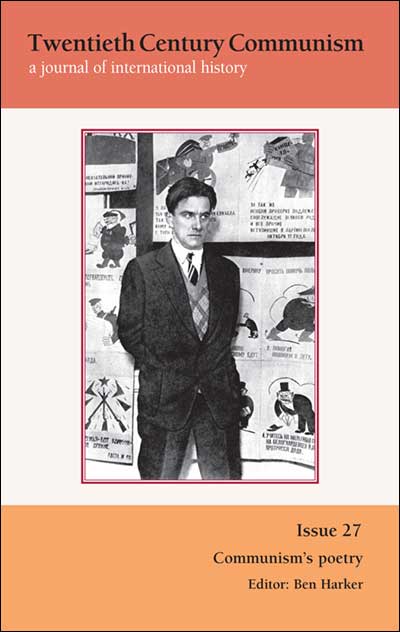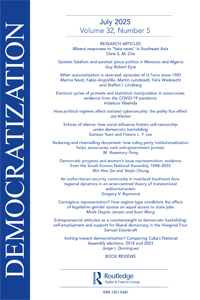Both recipients of a Wiener-Anspach postdoctoral grant in 2022–2023, Edward Lee-Six and David Talukder have recently published articles stemming from their research stays at the ULB and the University of Cambridge, respectively.
 Edward Lee-Six (PhD in French and English Literature, University of Cambridge) devotes an article to the author at the heart of his research at the ULB, Émile Verhaeren (“Émile Verhaeren and the Question of Bolshevik Poetry”, Twentieth Century Communism – Volume 2024 Number 27). In it, he analyzes the reasons for Verhaeren’s success in Russia and in the early Soviet Union, where the Belgian poet’s work was interpreted in a manner that differed significantly from its critical reception in Western Europe.
Edward Lee-Six (PhD in French and English Literature, University of Cambridge) devotes an article to the author at the heart of his research at the ULB, Émile Verhaeren (“Émile Verhaeren and the Question of Bolshevik Poetry”, Twentieth Century Communism – Volume 2024 Number 27). In it, he analyzes the reasons for Verhaeren’s success in Russia and in the early Soviet Union, where the Belgian poet’s work was interpreted in a manner that differed significantly from its critical reception in Western Europe.
Abstract
Émile Verhaeren, though largely forgotten today, was famous during his life-time and in the decades immediately after his death, his celebrity stretching from London to Moscow. This article argues that the reasons for this celebrity were nevertheless profoundly different in East and West: in England, France and Belgium, Verhaeren owed his fame largely – though not exclusively – to his reputation as a Belgian patriot against the background of WWI, and as the spokesman for Flemish cultural identity. In Russia, by contrast, after both the 1905 Revolution and the 1917 Revolution, Verhaeren was read as a prophet of proletarian-led social change. This reading was determined both by its political context and its theoretical context: that is, the debates on socialist realism in the young USSR. How could socialist realism – a theory developed around the novel – provide a relevant analytical framework when it came to poetry? Verhaeren’s verse seemed to offer an answer to this question. Furthermore, not despite, but thanks to, this strong contextual determination, Soviet critics picked up on something in Verhaeren’s poetry that most Western readers missed.

After his fellowship in Cambridge, Dr. Talukder was appointed as a postdoctoral researcher at the University of Namur as part of the ERC Starting Grant project POLSTYLE.
Abstract
A crucial factor for the survival of democracies is the extent to which democratic attitudes are widespread in a society. Yet, in a context of increasing dissatisfaction in Western Europe, some studies suggest that younger generations are becoming less attached to democracy. In this article, we take a step back and explore the factors that can explain generational differences in democratic attitudes. In particular, we identify the political and economic drivers of satisfaction with democracy and test for variation across generations in West European democracies. By incorporating the newly of-age Generation Z, we compare the political drivers of satisfaction with democracy of this cohort with those of older generations. Our results show that younger cohorts’ satisfaction with democracy is more influenced by economic conditions than previous cohorts. The results highlight the importance of addressing the economic well-being and specific needs of younger generations to mitigate their disenchantment with democracy.


